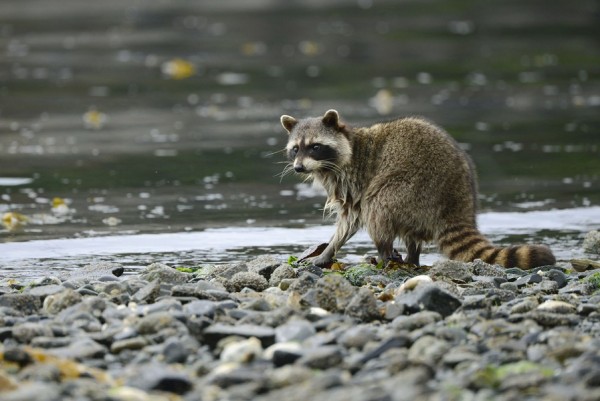By Ana Verayo, | February 27, 2016

Raccoons in Gulf Islands, British Columbia were exposed to sounds of wild dogs to spark fear.
Environmentalists now use fear to balance out ecosystems according to a new research that can lead to better management of wild areas.
This is especially prevalent in raccoons that are dwelling in the Gulf Islands in British Columbia as predators are now eliminated from the island, which include wolves and cougars, for almost 100 years. Due to the absence of predators, raccoons are now damaging songbird populations including fish and crab populations.
Like Us on Facebook
In this new study, researchers exposed the animals to various sounds of predators such as wild dogs that are designed to induce fear. Apart from these predator sound recordings, they are also exposed to non threatening sounds such as seals that are also played in the raccoons' habitat.
Researchers discovered that the sounds of predators apparently reduced foraging activities by the raccoons where wild dog calls reduced their amount of foraging by 66 percent compared to the sounds of seals.
This means that wild predator sounds can spark fear in their prey as these effects can also be felt to smaller animals like raccoons, that can offer an advantage in maintaining balance within an ecosystem.
According to Liana Zanette from the University of Western Ontario, this new experiment verifies how by instilling fear, the ecosystem itself can control the existence and populations of large carnivores in the landscape and failing to identify fear risks can underestimate how large carnivores play an important role in the structure of ecosystems.
Prior studies say that fear of predators can reduce the amount plants that are being consumed by animals however this new study shows how fear is an advantage that can help in reducing the damage to smaller animal populations in ecosystems by herbivores and other prey.
When the preying behavior of a top predator is affected in a major way, the effects can trickle down to other animals below the food chain in any ecosystem, according to scientists. For example, the reintroduction of wolves in Yellowstone Park resulted in less foraging by elk that increased plant populations and songbirds.
In smaller creatures such as insects, grasshoppers now alter their patterns in foraging when they are scared by spiders, even if the predator does not attack its prey, making researchers question if this can be applicable to larger animals.
This new study is published in the journal Nature Communications.
-
Use of Coronavirus Pandemic Drones Raises Privacy Concerns: Drones Spread Fear, Local Officials Say

-
Coronavirus Hampers The Delivery Of Lockheed Martin F-35 Stealth Fighters For 2020

-
Instagram Speeds Up Plans to Add Account Memorialization Feature Due to COVID-19 Deaths

-
NASA: Perseverance Plans to Bring 'Mars Rock' to Earth in 2031

-
600 Dead And 3,000 In The Hospital as Iranians Believed Drinking High-Concentrations of Alcohol Can Cure The Coronavirus

-
600 Dead And 3,000 In The Hospital as Iranians Believed Drinking High-Concentrations of Alcohol Can Cure The Coronavirus

-
COVID-19: Doctors, Nurses Use Virtual Reality to Learn New Skills in Treating Coronavirus Patients







